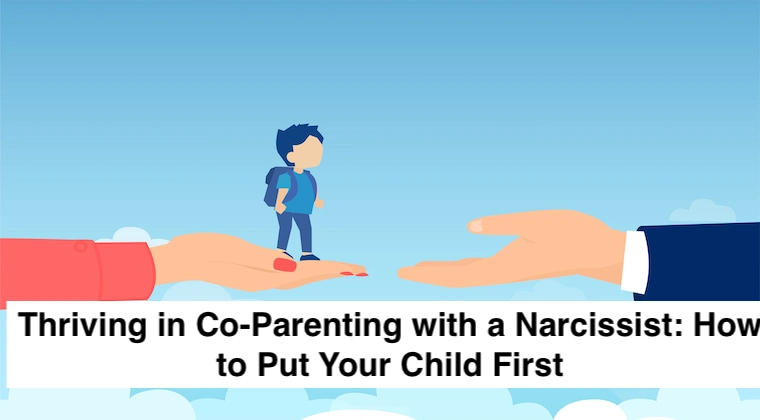Anger Management for Parents: Techniques to Stay Calm
Parenting can be incredibly rewarding, but it also comes with its share of frustrations and stress. When things get tough, it’s easy for anger to build up. Learning to manage that anger is essential—not just for your own peace of mind, but also for the well-being of your children. Let’s take a look at the practical and simple strategies to manage anger as a parent.
What is Anger Management for Parents?
Anger management refers to the process of recognizing and controlling anger before it negatively affects your behavior or relationships. For parents, this means staying calm even in stressful situations, like dealing with tantrums, sibling fights, or rebellious behavior. Managing anger effectively helps build stronger, healthier relationships with your children, creating a more peaceful home environment.
Understanding the Root Causes of Parental Anger
Many parents experience anger, but understanding where it comes from is the first step in controlling it. Common causes of parental anger include:
- Stress and exhaustion: Balancing work, home life, and personal needs can be overwhelming.
- Unrealistic expectations: Wanting your children to behave perfectly or do everything right can lead to frustration.
- Personal history: If you grew up in an environment where anger was common, it may influence how you handle stress now.
Recognizing your triggers, whether it’s a messy house or defiance from your children, can help you prevent outbursts before they happen.
The Impact of Parental Anger on Children
When parents frequently express anger, children can feel afraid, confused, or unloved. It can also lead to:
- Emotional problems, like anxiety or low self-esteem.
- Behavioral issues, including acting out or mimicking angry behaviors.
- Long-term effects on relationships and emotional regulation as they grow older.
Children learn by watching their parents, so managing your own emotions shows them how to handle theirs.
Techniques for Managing Anger as a Parent
Thankfully, there are many strategies parents can use to control anger before it gets out of hand:
- Recognize early signs of anger: Pay attention to your body and emotions—tight muscles, rapid breathing, or a racing heart may indicate rising anger.
- Take a pause: Before reacting, take a deep breath, count to 10, or step away for a few minutes. This break gives you time to calm down and respond more thoughtfully.
- Mindfulness and relaxation techniques: Simple breathing exercises or mindfulness practices can help you stay calm during challenging moments. Even just focusing on your breath for a minute can reduce tension.
- Positive self-talk: Remind yourself that it’s okay not to have all the answers. Change negative thoughts like “Why can’t they just listen?” to “It’s tough right now, but I can handle this.”
- Healthy outlets for frustration: Exercise, journaling, or talking to a friend can help release built-up stress in healthy ways. Engaging in these activities regularly can make you less reactive when things get tough.
Preventive Strategies to Reduce Anger
There are many ways to avoid reaching that boiling point in the first place:
- Set realistic expectations: Understand that no child is perfect, and every parent makes mistakes. Lowering your expectations for constant perfection can reduce frustration.
- Establish a self-care routine: Prioritizing your own needs, such as rest, healthy eating, and time for relaxation, will help you maintain a calm mindset. Remember, you can’t pour from an empty cup!
- Improve communication with your children: When frustrations arise, express how you feel calmly. Use “I” statements, like “I feel upset when the toys are not put away,” instead of blaming or criticizing.
- Build a support system: Having a reliable group of friends, family, or a counselor to talk to can provide much-needed emotional relief. They can offer perspective and advice when you’re feeling overwhelmed.
Teaching Children Healthy Emotional Responses
Managing your anger also gives you the opportunity to teach your children about their own emotions. Here’s how you can help them:
- Explain anger in simple terms: Let them know it’s okay to feel angry sometimes, but it’s important to handle it constructively.
- Share calming techniques: Teach them deep breathing or counting down from 10 to help them manage their frustrations.
- Model conflict resolution: Show them how to talk through problems calmly rather than shouting or arguing.
When to Seek Professional Help
Sometimes, managing anger on your own can feel impossible, and that’s okay. If you find that anger is affecting your relationships or well-being, seeking professional help may be necessary. Counseling or therapy can provide tools and techniques tailored to your specific situation. There are also anger management programs designed specifically for parents, which can be incredibly helpful in managing stress and staying calm under pressure.
Managing anger as a parent is essential for fostering a healthy, loving home. By understanding your triggers, using techniques to calm down, and setting up preventive strategies, you can build a more peaceful and supportive environment for your children. Remember, it’s not about being a perfect parent—just a calm and patient one.


